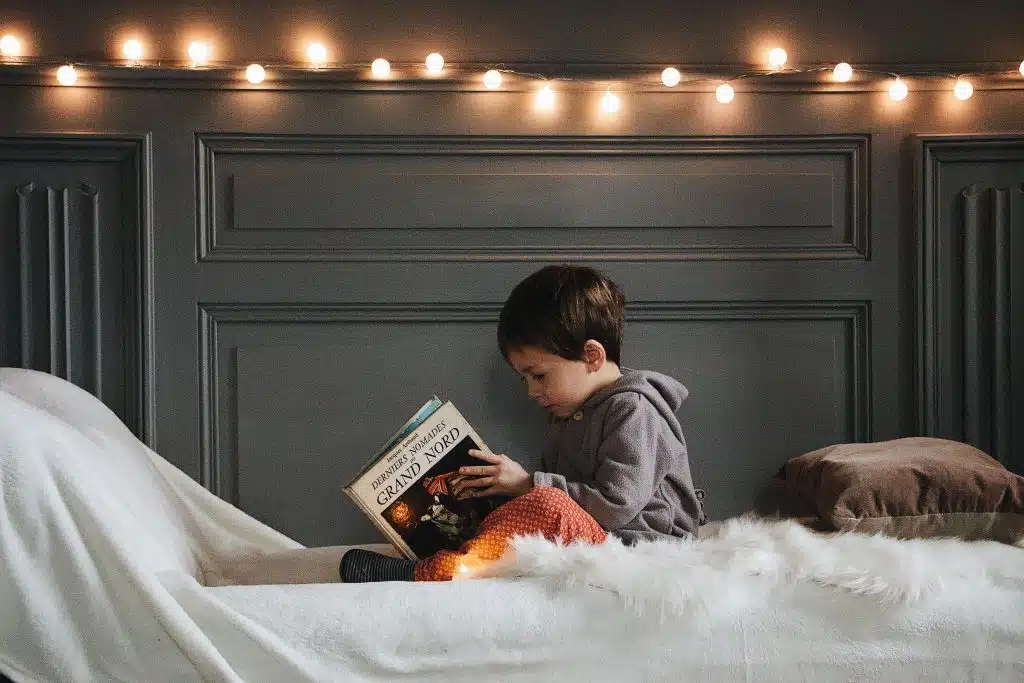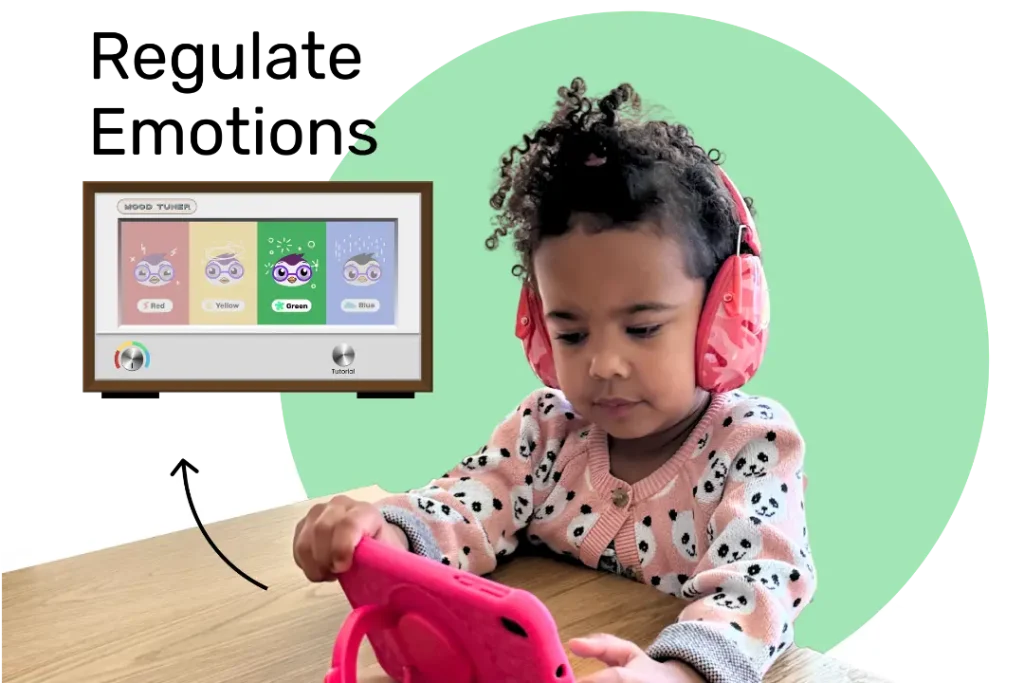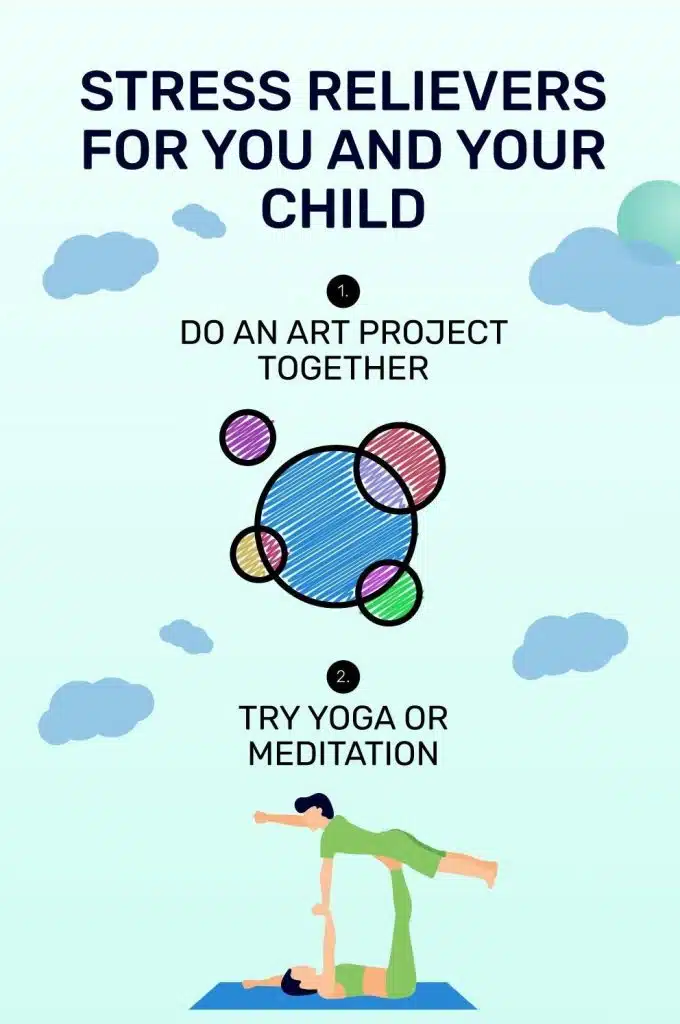Amazing news for parents and kids! Scientists have discovered seven incredible anxiety coping skills that can help children feel more in control and ready to take on the world. Did you know that these powerful techniques work wonders for both neurodivergent and neurotypical kids? By learning things like mindfulness and fun physical activities, children can become real-life superheroes, armed with the tools they need to conquer anxiety and face any challenge that comes their way!
Table of Contents
1. Deep Breathing Exercises
Teaching your child deep breathing techniques is a simple yet powerful way to help your kid calm down during moments of anxiety. It’s a skill that can happen at any place and anytime, making it an ideal coping strategy.
Here’s a quick guide to get started:
- Ask your child to sit or lie down comfortably.
- Instruct them to breathe in slowly through their nose for a count of four.
- Hold your breath for a count of four.
- Exhale slowly through the mouth for a count of four.
- Repeat this process several times until they feel calmer.
Encourage your child to practice deep breathing regularly so it becomes a natural coping skill for anxiety. You can also introduce them to different breathing techniques, such as belly breathing or alternate nostril breathing, to find what works best for them. Breathing exercises help kids with anxiety relief.
2. Mindfulness and Meditation
Mindfulness and meditation can help kids with thinking and learning differences to focus on the present moment and let go of anxious thoughts. By practicing mindfulness, your child can develop a greater sense of self-awareness and learn to respond to stress more effectively.
Try introducing short, guided meditation sessions using apps like Goally, which offers tailored content for neurodivergent kids. Start with just a few minutes a day and gradually increase the duration as your child becomes more comfortable with the practice. You can also explore other mindfulness activities, such as mindful coloring or listening to calming music, to find what resonates with your child.
3. Progressive Muscle Relaxation
Progressive muscle relaxation (PMR) is a technique that involves tensing different muscle groups to release tension and reduce anxiety. It’s beneficial for kids who experience physical symptoms of anxiety, such as muscle tension or stomachaches.
Here’s how to guide your child through PMR:
- Have your child sit or lie down in a comfortable position.
- Starting with the feet, ask them to tense the muscles for a count of five and then relax.
- Move up the body, tensing and relaxing each muscle group (calves, thighs, buttocks, stomach, chest, arms, hands, neck, and face).
- Encourage your child to notice the difference between tension and relaxation in their muscles.

With practice, PMR can become an effective coping skill for anxiety in kids. You can also try incorporating visualization techniques, such as imagining a wave of relaxation washing over their body, to enhance the relaxation experience.
4. Exercise and Physical Activity
Physical activity is a natural stress reliever and can help kids manage anxiety. Exercise releases endorphins, which are natural mood boosters, and helps to regulate stress hormones. Encourage your child to engage in activities they enjoy, such as swimming, dancing, or playing sports.
Even a short walk or bike ride can make a difference. Remember, the goal is to help your child find an enjoyable way to release energy and reduce anxiety. You can also explore structured exercise programs, such as yoga or martial arts, which can provide additional benefits like improved focus and self-discipline.
Read More: Printable Exercise Chart
5. Art and Creative Expression
Art and creative expression can be therapeutic for neurodivergent kids, providing an outlet for emotions and a way to process anxiety. Engaging in creative activities can help your child develop a sense of accomplishment, which can boost their self-esteem and resilience.

Encourage your child to explore different forms of art, such as drawing, painting, sculpting, or even digital art using apps like Goally. The focus should be on the process and self-expression rather than the end result. You can also consider enrolling your child in art classes or workshops to provide additional support and opportunities for social interaction.
6. Journaling
Journaling can help kids express their thoughts and feelings, making it easier to manage anxiety. Writing or drawing about their experiences, emotions, and worries can provide a sense of relief and help your child gain perspective on their concerns.
Provide your child with a notebook or journal and encourage them to write or draw about their experiences, emotions, and worries. You can also suggest writing prompts or questions to help guide their journaling practice. Be sure to respect your child’s privacy and allow them to use their journal as a safe space for self-expression.
7. Establishing a Routine
Creating a consistent daily routine can provide a sense of stability and predictability for kids with anxiety. Structure and routine can help your child feel more in control of their day, reducing feelings of uncertainty and anxiety.
Work with your child to establish a routine that includes regular mealtimes, bedtime, and activities they enjoy. Using a visual schedule or an app like Goally can help your child stay on track and feel more in control of their day. Be sure to include opportunities for relaxation and self-care, such as quiet time or engaging in a favorite hobby, to help your child maintain a healthy balance.
Goally | Kid’s Tablet for Building Emotional Regulation Skills
Is your child struggling with understanding and managing their emotions? Goally teaches emotional regulation skills in a fun and interactive way!

The Mood Tuner app encourages kids to look inwards and identify their feelings, helping them understand what’s going on inside. Once they’ve recognized their emotions, they can choose from a variety of exercises designed to help them self-regulate and find their balance.
Final Thoughts
Supporting your child’s emotional well-being is crucial, and helping them develop coping skills for anxiety is a significant aspect of that support. By introducing these techniques and encouraging regular practice, you can empower your child to manage their anxiety more effectively. Keep in mind that every child is unique, so be patient and open to exploring different strategies to find what works best for your neurodivergent superstar. Together, you and your child can build a strong foundation for emotional resilience and well-being.
FAQs About Coping Skills for Anxiety
What are visual schedules, and how can they help with anxiety? Visual schedules are visual representations of daily activities or tasks. They help reduce anxiety by providing clear expectations and structure, especially for children who struggle with transitions or uncertainty.
How can emotional regulation apps aid in managing anxiety? Emotional regulation apps help individuals understand and manage emotions by providing breathing exercises and mood-tracking tools. They offer immediate support and strategies for calming anxiety.
What types of rewards effectively alleviate anxiety in children? Rewards such as praise, stickers, or extra playtime can effectively encourage positive behavior and alleviate anxiety. They provide motivation and reinforce the practice of anxiety-reducing strategies.
Are there any specific techniques to teach children how to breathe properly for anxiety reduction? Teaching children deep, slow breathing techniques like the 4-7-8 method (inhale for 4 counts, hold for 7, exhale for 8) can be very effective. These methods help in calming the nervous system and reducing anxiety.
What are the benefits of using multiple tools like visual schedules, emotional regulation apps, and rewards in anxiety management? Utilizing a combination of tools like visual schedules, emotional regulation apps, and rewards provides a comprehensive approach to managing anxiety. It addresses different aspects of anxiety, creating a customized and flexible solution.
This post was originally published on 05/11/2023. It was updated on 05/08/2024.
Emily is a seasoned blog writer for Goally, leveraging her extensive background in child psychology and special education to provide valuable insights and resources for parents. Her commitment to understanding and addressing the unique needs of these children, combined with her expertise in educational strategies, makes her a credible and empathetic voice for families.







